
Matavera: A Tranquil Paradise in the Cook Islands
Matavera, located on the island of Rarotonga in the Cook Islands, is a serene village that offers tourists a perfect blend of natural beauty and cultural richness. This quaint settlement, set against the backdrop of lush green mountains and pristine beaches, is an ideal destination for those seeking tranquility and an authentic island experience. Stroll through the village and you’ll be greeted by friendly locals who are proud of their heritage and eager to share their traditions. The village is dotted with charming churches, vibrant gardens, and traditional homes, providing a glimpse into the island's way of life. Don't miss the vibrant local markets where you can find handcrafted souvenirs and taste fresh tropical fruits. Matavera's proximity to both the mountains and the sea makes it a haven for outdoor enthusiasts. Adventure seekers can hike the rugged trails of the inland mountains or snorkel in the crystal-clear waters of the lagoon. Whether you are looking to relax on the sandy shores or explore the rich marine life, Matavera offers a peaceful retreat with plenty of activities to keep you engaged.
Local tips in Matavera
- Visit the local markets early in the morning for the freshest produce and unique souvenirs.
- Respect local customs and dress modestly, especially when visiting churches or attending local events.
- Rent a scooter or bike to explore the village and surrounding areas at your own pace.
- Bring reef-safe sunscreen to protect the delicate marine ecosystem while snorkeling.
- Try the local cuisine, especially the fresh seafood and tropical fruits, for an authentic taste of the island.
Matavera: A Tranquil Paradise in the Cook Islands
Matavera, located on the island of Rarotonga in the Cook Islands, is a serene village that offers tourists a perfect blend of natural beauty and cultural richness. This quaint settlement, set against the backdrop of lush green mountains and pristine beaches, is an ideal destination for those seeking tranquility and an authentic island experience. Stroll through the village and you’ll be greeted by friendly locals who are proud of their heritage and eager to share their traditions. The village is dotted with charming churches, vibrant gardens, and traditional homes, providing a glimpse into the island's way of life. Don't miss the vibrant local markets where you can find handcrafted souvenirs and taste fresh tropical fruits. Matavera's proximity to both the mountains and the sea makes it a haven for outdoor enthusiasts. Adventure seekers can hike the rugged trails of the inland mountains or snorkel in the crystal-clear waters of the lagoon. Whether you are looking to relax on the sandy shores or explore the rich marine life, Matavera offers a peaceful retreat with plenty of activities to keep you engaged.
When is the best time to go to Matavera?
Iconic landmarks you can’t miss
Punanga Nui Market
Experience Rarotonga's vibrant culture, local flavors, and unique crafts at the bustling Punanga Nui Market in the heart of Avarua.
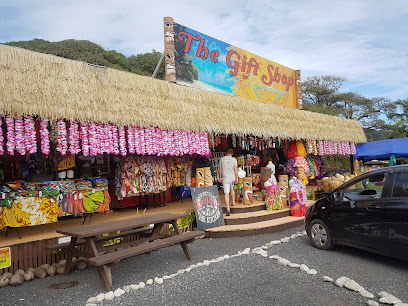
Muri Night Markets
Experience Rarotonga's vibrant culture and cuisine at the Muri Night Markets, a must-visit destination for food, crafts, and community spirit.
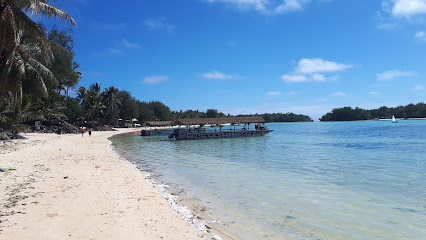
Captain Tamas Lagoon Cruizes
Discover Rarotonga's Muri Lagoon with Captain Tama's: Snorkeling, BBQ, and island fun await on this award-winning cruise!
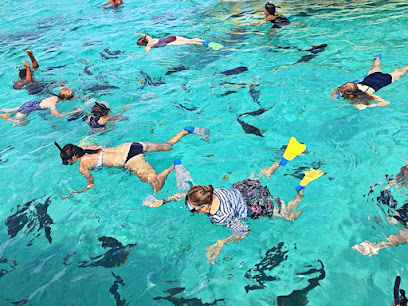
Vili's Burger Joint
Savor mouthwatering burgers in a laid-back tropical setting at Vili's Burger Joint, a must-visit destination in Rarotonga's Ngatangiia District.
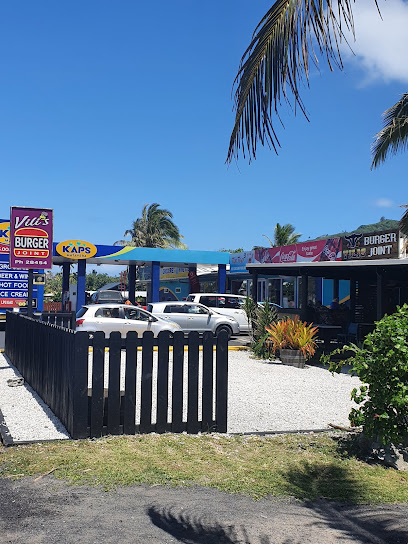
Koka Lagoon Cruises
Explore Rarotonga's Muri Lagoon with Koka Cruises: snorkeling, culture, BBQ feasts, and non-stop fun for all ages!
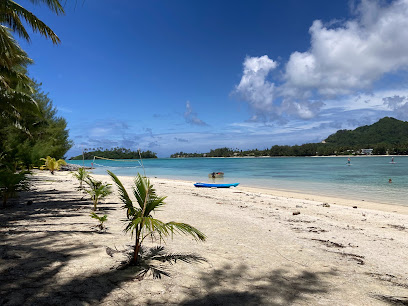
Te Vara Nui Village
Experience Rarotonga's vibrant culture at Te Vara Nui Village: immersive tours, spectacular shows, and delicious cuisine await in a stunning Muri Beach setting.
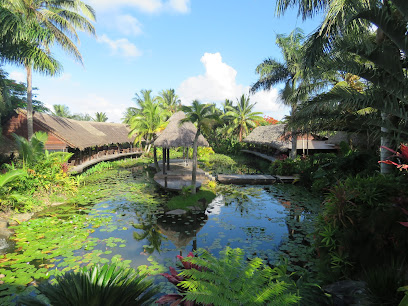
Te Ara Cook Islands Museum of Cultural Enterprise
Explore Cook Islands history and culture at Te Ara Museum in Muri, Rarotonga. Discover exhibits, crafts, and cultural experiences in a vibrant setting.
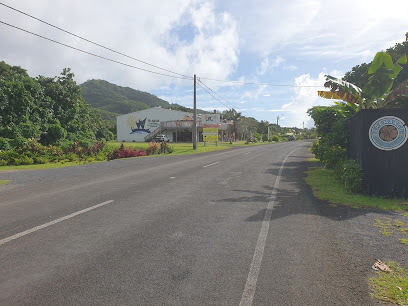
Te Rua Manga (The Needle)
Hike to Rarotonga's iconic Needle for breathtaking panoramic views and a glimpse into the island's volcanic past.
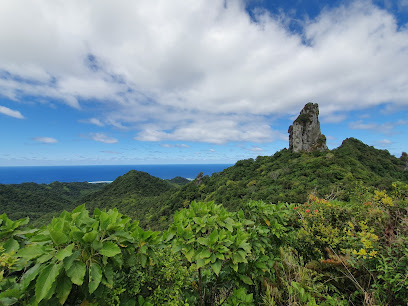
Wigmore's Waterfall
Discover Rarotonga's hidden gem: Wigmore's Waterfall, a serene escape into nature's beauty with a refreshing swimming lake and lush surroundings.
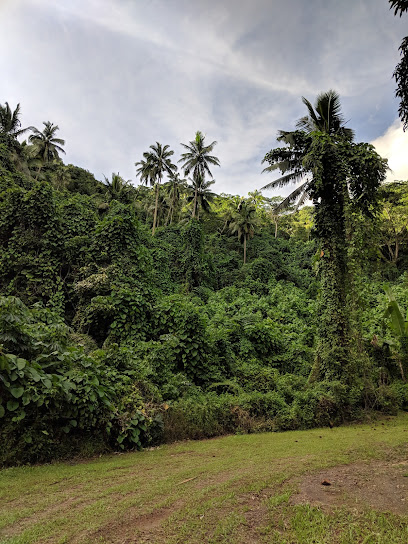
Ikurangi Eco Retreat
Experience eco-friendly luxury in Rarotonga: Glamping, mountain views, and sustainable practices await at Ikurangi Eco Retreat.
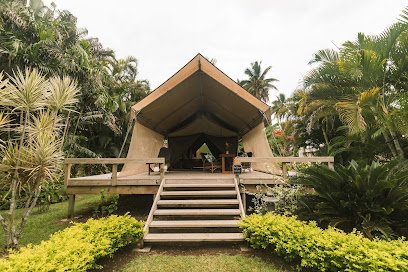
Highland Paradise
Discover Rarotonga's ancient past at Highland Paradise: Explore traditional villages, witness cultural performances, and experience Cook Islands heritage.
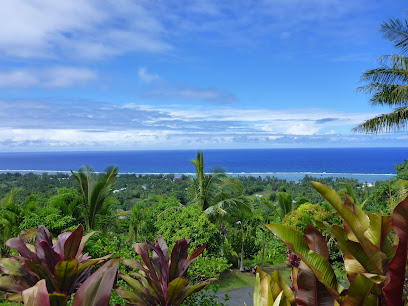
The Rickshaw Rarotonga
Savor authentic Asian flavors at The Rickshaw Rarotonga, where Vietnamese, Thai, and Indonesian cuisines meet island charm in Muri's heart.
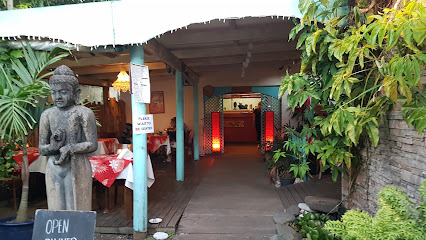
Black Rock
Discover Black Rock in Avarua: stunning volcanic formations, rich Maori history, and serene ocean views await on Rarotonga's beautiful coast.
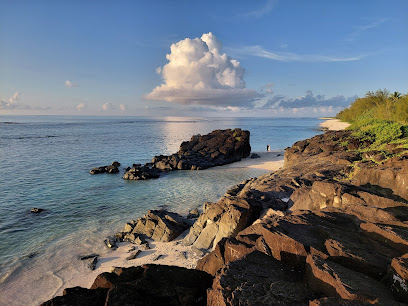
Love Café
Experience the love in every sip and bite at Rarotonga's Love Café, serving superb coffee and fresh baked goods in a friendly atmosphere.
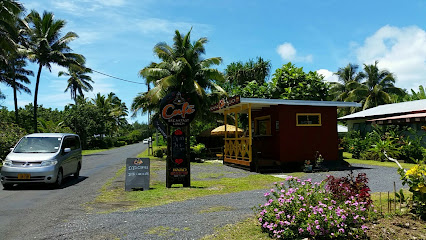
Ocean Escape Resort & Spa
Experience barefoot luxury at Rarotonga's eco-friendly, adults-only beachfront resort, offering tranquil villas and an ocean-fed pool for a serene escape.
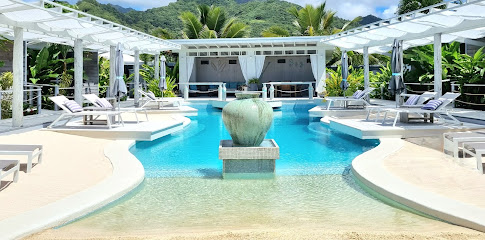
Unmissable attractions to see
Captain Tamas Lagoon Cruizes
Discover the enchanting beauty of Muri Beach with Captain Tamas Lagoon Cruises, where adventure meets relaxation in Rarotonga's tropical paradise.
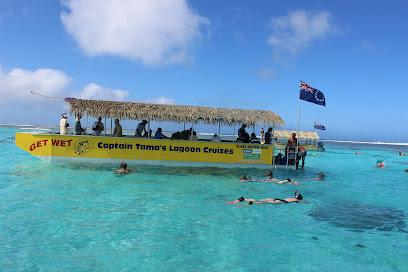
Rarotonga
Discover Rarotonga: A Polynesian paradise with stunning lagoons, lush landscapes, and vibrant culture, offering an unforgettable tropical escape.
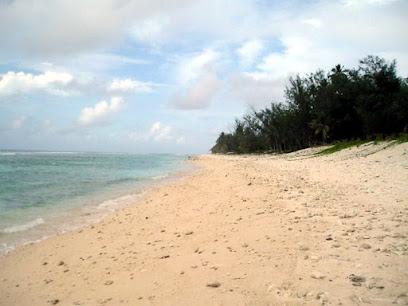
Maire Nui Gardens and Cafe
Explore the lush landscapes of Maire Nui Gardens and Cafe in Rarotonga, where nature and culinary delights come together for a perfect getaway.
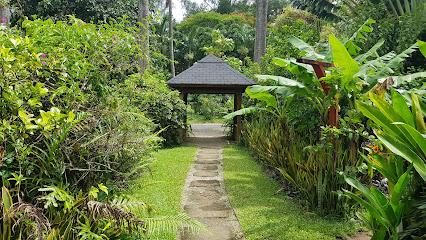
Shipwreck Hut Bar & Restaurant & Accomodation
Experience the best of Rarotonga's beach life at Shipwreck Hut: stunning sunsets, live music, delicious food, and a vibrant, pirate-themed atmosphere.
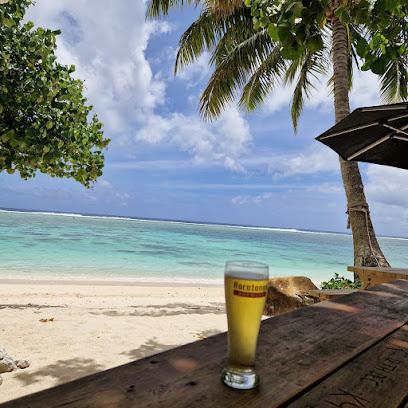
Te Ara Cook Islands Museum of Cultural Enterprise
Immerse yourself in Cook Islands history and culture at Te Ara Museum, showcasing Polynesian heritage and supporting local artisans in Muri, Rarotonga.
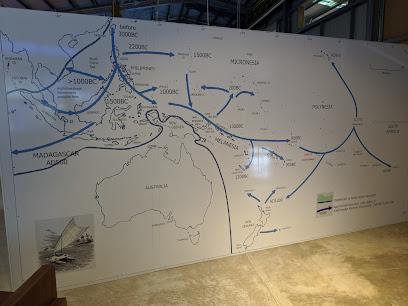
Ariki Adventures
Discover the breathtaking landscapes and thrilling activities at Ariki Adventures in Takitumu, the ultimate adventure hub of the Cook Islands.
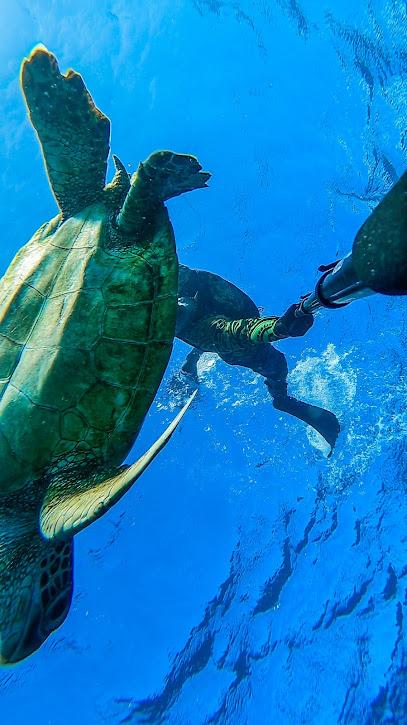
Te Rua Manga (The Needle)
Hike to Rarotonga's iconic Te Rua Manga (The Needle) for panoramic views and a taste of Cook Islands adventure. A challenging trek with rewarding vistas!
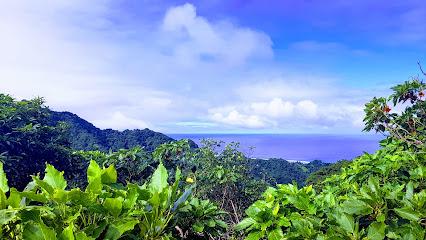
Muri Beach
Discover the enchanting Muri Beach, a breathtaking slice of paradise in the Cook Islands, perfect for relaxation, aquatic adventures, and cultural experiences.
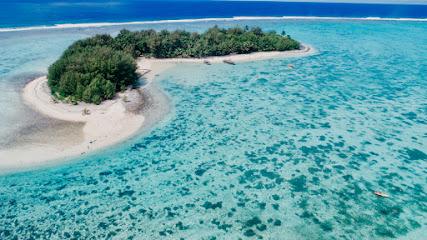
Black Rock
Experience the breathtaking beauty and tranquility of Black Rock in Avarua, a hidden gem for nature lovers and adventure seekers alike.
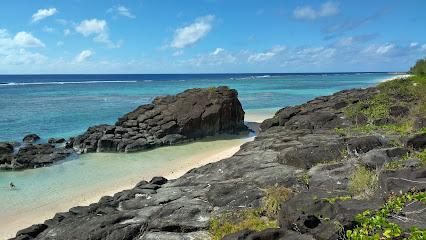
Raro Reef Sub
Explore the mesmerizing underwater wonders of Raro Reef Sub in Avarua, where adventure meets the beauty of the Cook Islands.
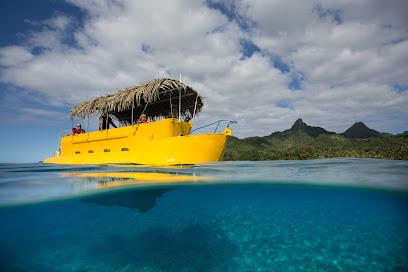
Cook Islands Library & Museum
Discover the rich history and culture of the Cook Islands at the Cook Islands Library & Museum, a must-visit for every traveler.
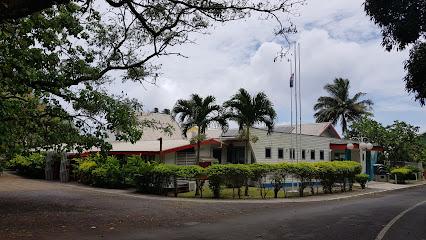
Muri Lagoon
Explore the tranquil beauty of Muri Lagoon, a tropical paradise with stunning waters, vibrant marine life, and endless adventure opportunities.
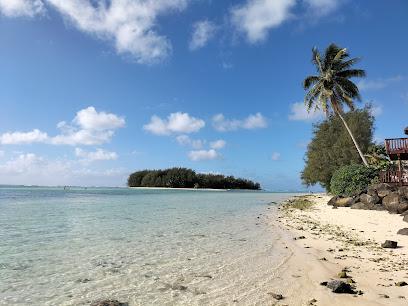
Cook Islands Tours
Experience the breathtaking beauty and rich culture of the Cook Islands with guided tours from Cook Islands Tours in Avarua.
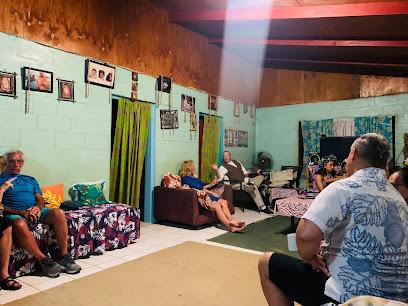
Essential places to dine
Trader Jacks
Experience the vibrant flavors of Cook Islands cuisine at Trader Jacks in Avarua - where dining meets breathtaking ocean views.
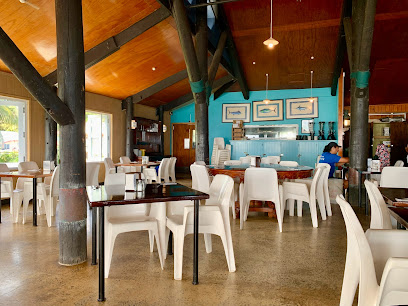
Charlie's Raro
Discover the flavors of paradise at Charlie's Raro – where culinary excellence meets breathtaking views in Takitumu District.
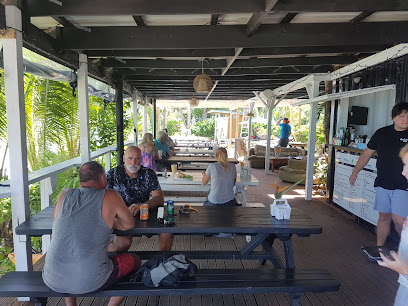
The Mooring Fish Cafe
Discover The Mooring Fish Cafe: A delightful spot in Ngatangiia District serving fresh fish & chips with stunning views of Muri Beach.
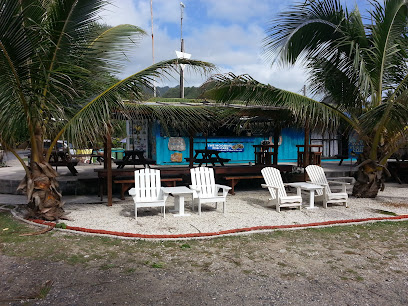
Vili's Burger Joint
Experience mouthwatering burgers and vibrant atmosphere at Vili's Burger Joint in Ngatangiia District.
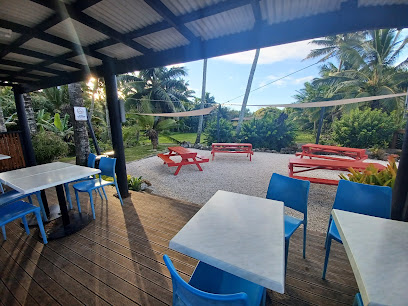
Tamarind House Restaurant & Ukulele Bar
Discover culinary delights at Tamarind House Restaurant & Ukulele Bar in Avarua - where local flavors meet vibrant entertainment amidst stunning island views.
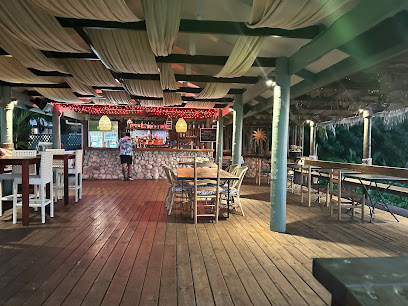
Vaima Restaurant and Bar
Discover authentic Polynesian flavors at Vaima Restaurant and Bar in Takitumu District - where culinary excellence meets breathtaking views.
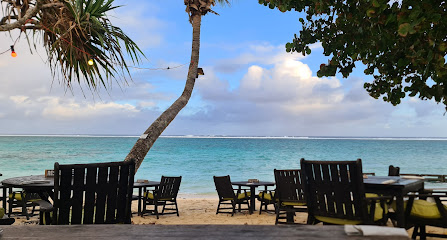
The Waterline Restaurant and Outrigger Beach Bar
Experience breathtaking ocean views and delectable cuisine at The Waterline Restaurant in Rarotonga - a true culinary gem in paradise.
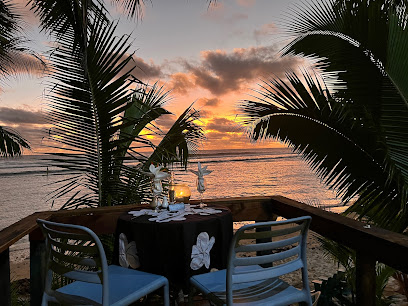
Antipodes rarotonga
Experience exquisite dining at Antipodes Rarotonga - where local flavors meet international culinary excellence in Avarua.
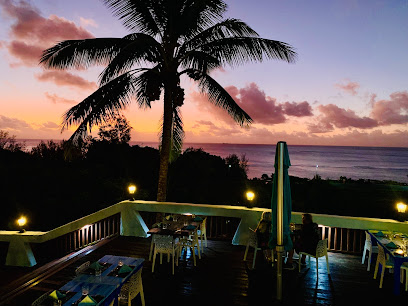
Palace Takeaways
Experience authentic Cook Islands cuisine at Palace Takeaways—your go-to spot for delicious takeout in Avarua.
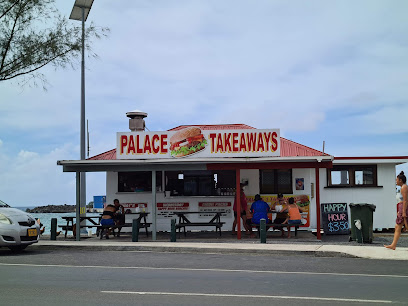
Shipwreck Hut Bar & Restaurant & Accomodation
Discover culinary delights and vibrant live music at Shipwreck Hut Bar & Restaurant in Arorangi District - A true taste of island paradise!
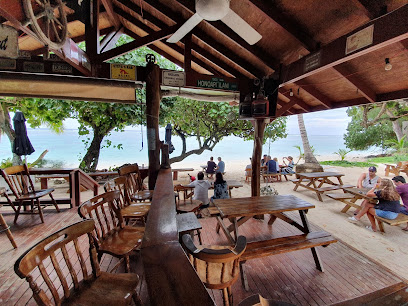
Spaghetti House Restaurant
Discover authentic Italian cuisine at Spaghetti House Restaurant in Arorangi District, where flavors meet paradise.
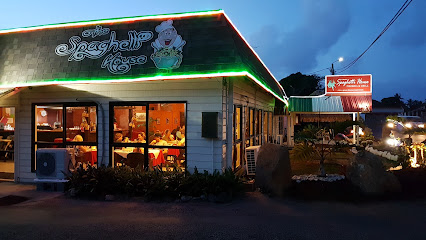
Flying Turtle Cafe
Discover culinary delights at Flying Turtle Cafe in Rarotonga, where fresh ingredients meet stunning island views for an unforgettable dining experience.
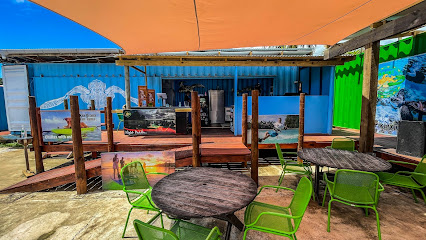
Kikau Hut
Discover Kikau Hut: An enchanting restaurant offering authentic Cook Islands cuisine and stunning ocean views in Rarotonga.
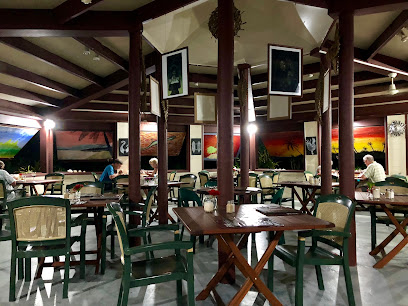
On the Beach Bar and Restaurant
Discover culinary delights at On the Beach Bar and Restaurant with stunning ocean views in Arorangi District.
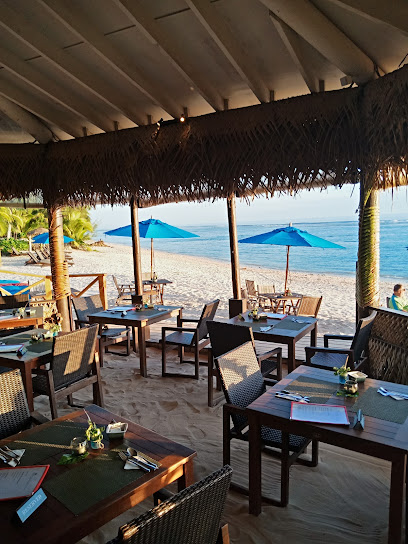
The Lucky Rooster Eatery
Discover The Lucky Rooster Eatery in Avarua - where culinary artistry meets local flavor in a charming atmosphere.
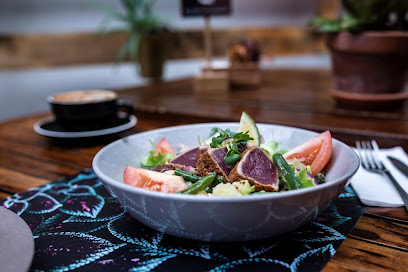
Markets, malls and hidden boutiques
Ollie's Surf Gear
Discover the spirit of surfing at Ollie's Surf Gear, your go-to destination for all surf apparel and gear in Avarua.
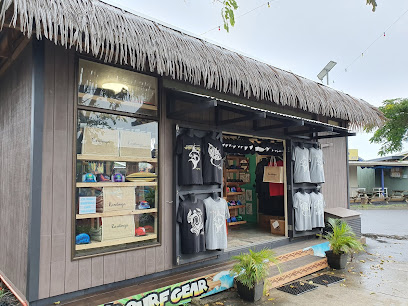
Island Craft Ltd
Explore Island Craft Ltd for unique handcrafted gifts that celebrate the culture and artistry of the Cook Islands.
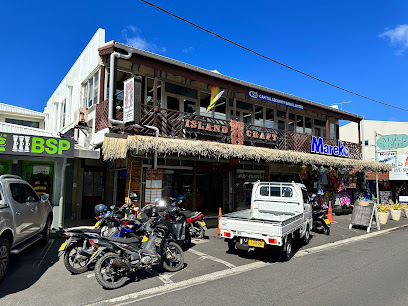
The T-Shirt Factory
Discover unique, locally-designed t-shirts and souvenirs at The T-Shirt Factory in Avarua, capturing the essence of the Cook Islands' culture.
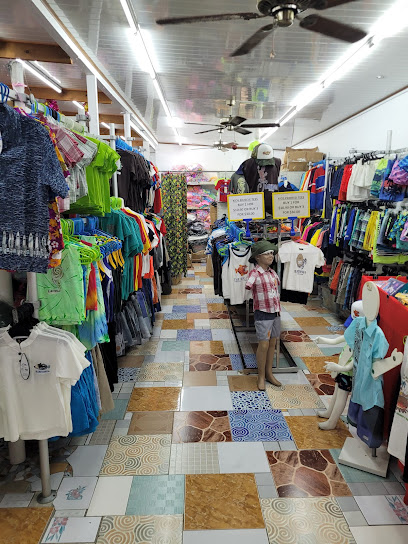
KAPS Matavera
Discover KAPS Matavera, the essential supermarket in Ngatangiia District, offering fresh produce and local specialties for your travel needs.
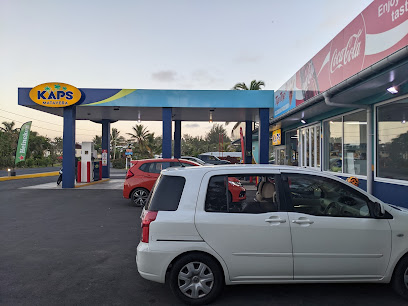
Cooks Fudge Factory/ Perfumes of Rarotonga
Explore a sweet haven at Cooks Fudge Factory and Perfumes of Rarotonga, where gourmet treats and unique fragrances await.
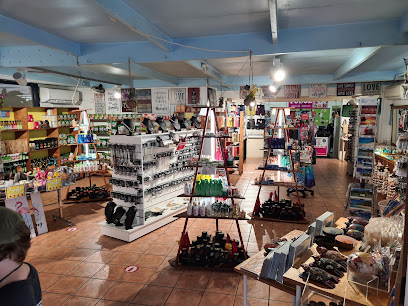
Vonnias Warehouse
Experience shopping like never before at Vonnias Warehouse in Avarua, where local culture meets vibrant goods.
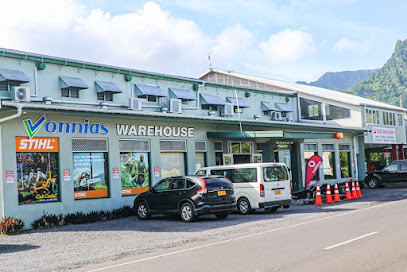
Creative Centre
Explore the Creative Centre in Avarua, where local artistry meets vibrant culture, offering unique handcrafted treasures from the Cook Islands.
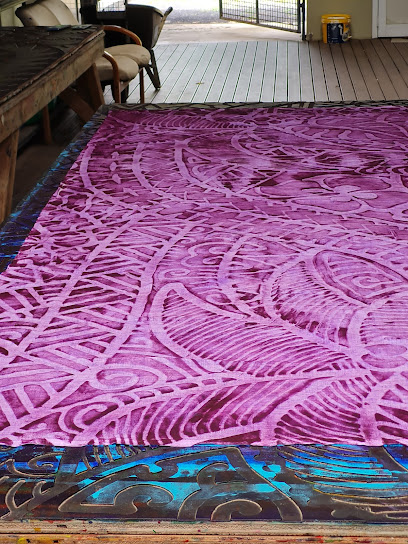
Tuki's Pareu
Explore Tuki's Pareu, where the vibrant culture of the Cook Islands meets exceptional clothing and unique local fashion.
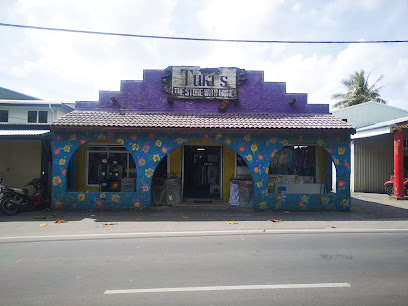
Tivaevae Collectables Cultural Gift Shop
Explore authentic Cook Islands culture at Tivaevae Collectables – your destination for unique, locally sourced gifts and treasures.
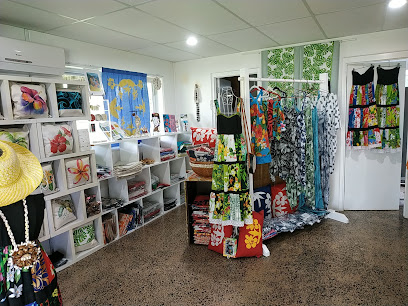
Raro Mart
Discover a world of shopping at Raro Mart in Avarua, with everything from essentials to unique antiques for the discerning traveler.
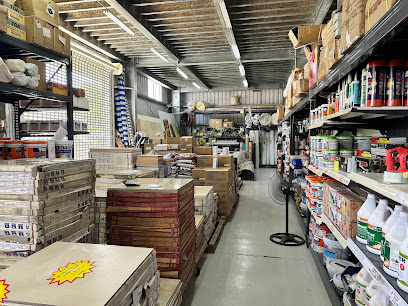
Mareko Island Creations
Explore Mareko Island Creations for unique gifts that embody the rich culture and artistry of the Cook Islands, perfect for souvenirs and keepsakes.
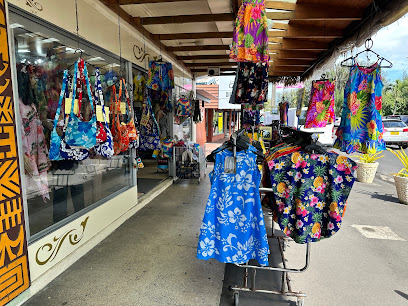
SPCA OP SHOP PUNANGA NUI MARKETS
Explore the SPCA Op Shop at Punanga Nui Markets for unique clothing treasures while supporting animal welfare in the Cook Islands.
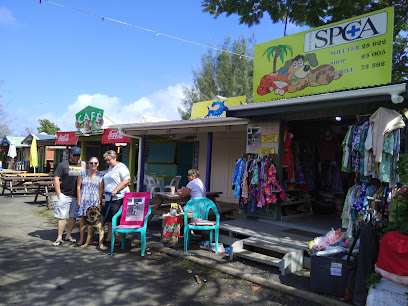
The Gift Shop
Discover unique souvenirs and local crafts at The Gift Shop in Avarua, Rarotonga – a treasure trove of Polynesian culture.
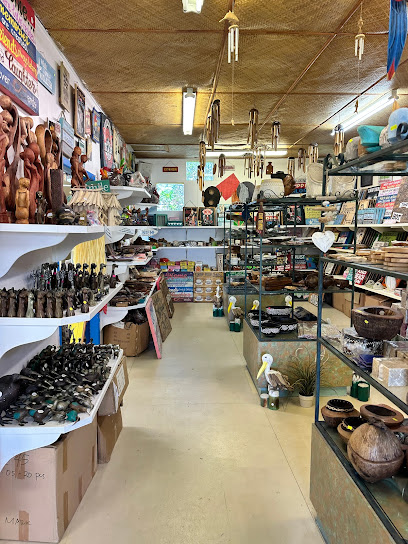
Manini Wear
Explore the vibrant styles of Manini Wear in Avarua – your destination for island-inspired fashion and local craftsmanship.
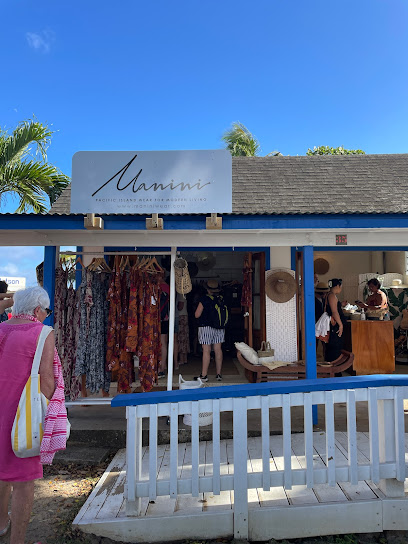
Farm Direct Pearls
Explore Farm Direct Pearls in Avarua for exquisite pearl jewelry and a unique shopping experience that captures the essence of the Pacific Islands.

Essential bars & hidden hideouts
Trader Jacks
Experience the vibrant atmosphere and exquisite flavors of Trader Jacks, Avarua's premier grill, bar, and nightlife destination.
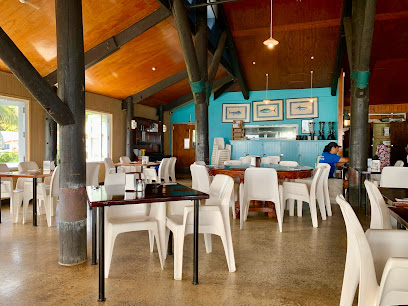
Charlie's Raro
Experience the vibrant flavors and lively atmosphere at Charlie's Raro, the top bar and restaurant in the heart of the Cook Islands.
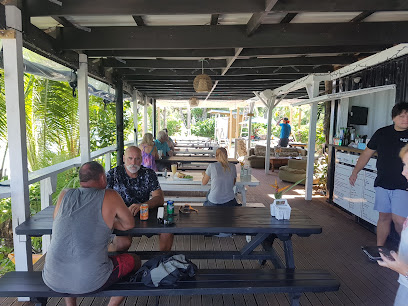
Vili's Burger Joint
Discover Vili's Burger Joint in Ngatangiia District for mouthwatering burgers and a taste of local flavors in a casual tropical setting.
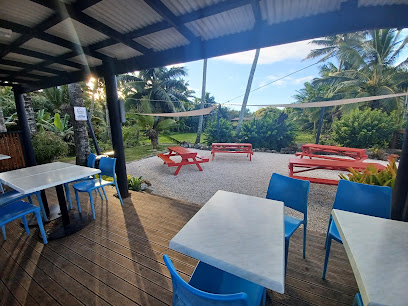
Tamarind House Restaurant & Ukulele Bar
Experience exquisite cuisine and vibrant live music at Tamarind House Restaurant & Ukulele Bar in Avarua, a true Cook Islands culinary paradise.
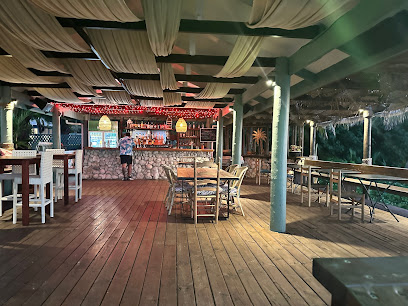
Vaima Restaurant and Bar
Discover culinary bliss at Vaima Restaurant and Bar in the heart of Takitumu District, where fresh flavors meet stunning views.
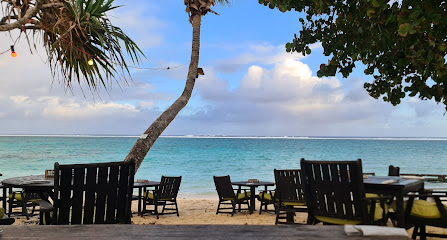
21.3 Vaiana's Bar & Bistro
Experience the vibrant atmosphere and stunning ocean views at Vaiana's Bar & Bistro in Avarua, where delicious food meets island charm.
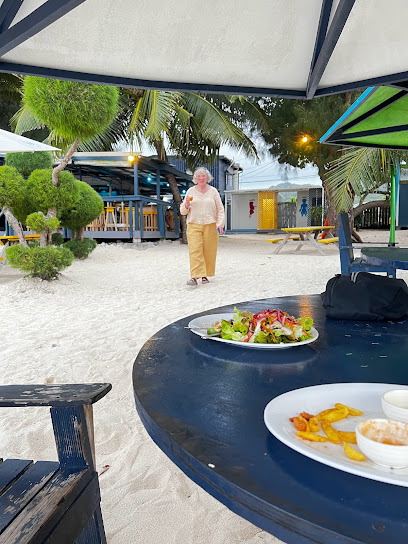
Shipwreck Hut Bar & Restaurant & Accomodation
Experience the vibrant culture and exquisite flavors of the Cook Islands at Shipwreck Hut Bar & Restaurant, a must-visit destination for all travelers.
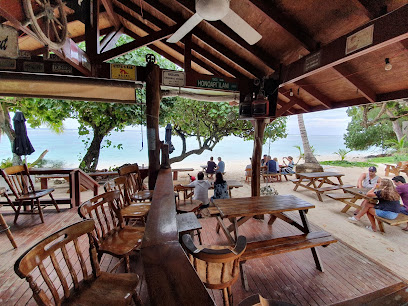
Wilsons Bar & Restaurant
Discover the vibrant flavors of the Cook Islands at Wilsons Bar & Restaurant, where stunning views and delicious food create an unforgettable dining experience.
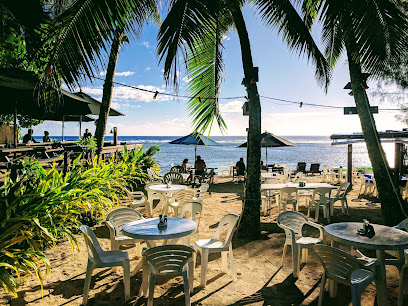
Rehab
Dive into the vibrant nightlife of Avarua at Rehab, a premier bar and disco club offering unforgettable music and an electric atmosphere.
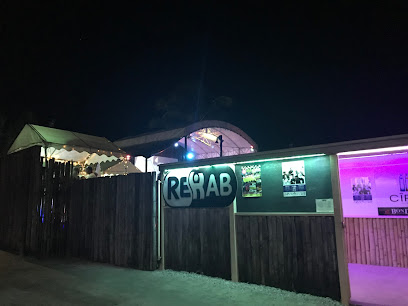
Tumunu Bar and Restaurant
Experience the vibrant atmosphere at Tumunu Bar and Restaurant, where island flavors meet refreshing drinks in the heart of Arorangi District.
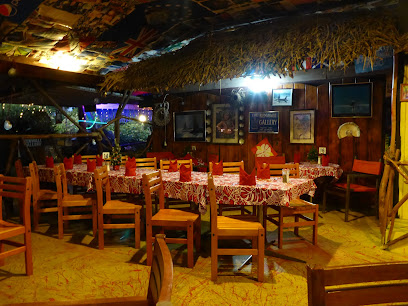
Mai’i Cafe & Bar
Experience the vibrant atmosphere and local flavors of Mai’i Cafe & Bar in the beautiful Takitumu District, where relaxation meets island culture.
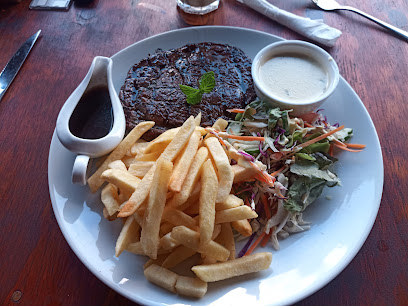
Hula Bar
Discover the lively spirit of Hula Bar in Rarotonga, where refreshing drinks, great music, and a vibrant atmosphere come together for an unforgettable night out.
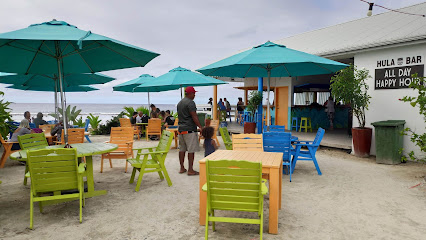
Roadhouse Bar & Restaurant
Savor delicious meals and vibrant entertainment at Roadhouse Bar & Restaurant, the perfect spot for tourists to relax and enjoy local flavors.
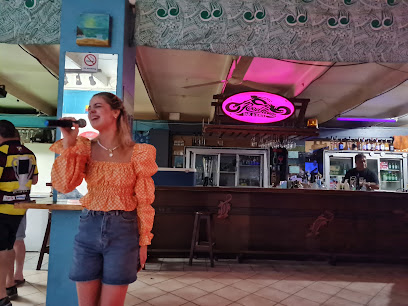
Margaritas Bistro & Bar
Experience a delightful culinary journey at Margaritas Bistro & Bar in Avarua, where local flavors meet a vibrant atmosphere.
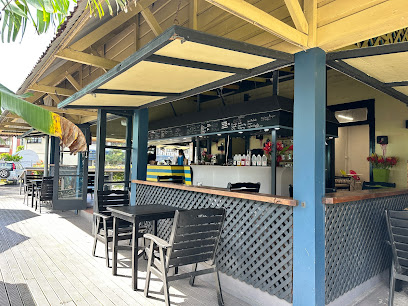
Tiki Bar
Experience the vibrant atmosphere and tropical flavors at Tiki Bar in Avarua, your ultimate escape in the heart of the Cook Islands.
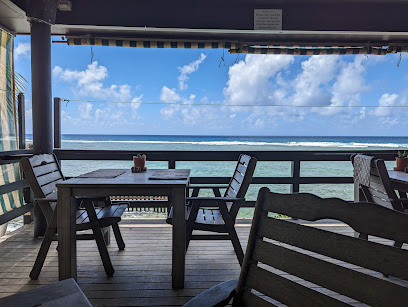
Local Phrases
-
- HelloKia Orana
[Kee-ah Or-ran-ah] - GoodbyeAere ra
[Eye-ray rah] - YesE
[Eh] - NoKare
[Kar-eh] - Please/You're welcomeMeitaki
[May-ta-key] - Thank youMeitaki
[May-ta-key] - Excuse me/SorryTatou
[Ta-toh] - How are you?Pe ea koe?
[Pay ay-ah koh-eh?] - Fine. And you?Meitaki. E koe?
[May-ta-key. Eh koh-eh?] - Do you speak English?E koe e akakite i te reo Ingariki?
[Eh koh-eh eh ah-kah-kee-teh ee teh reh-oh Ing-gah-ree-kee?] - I don't understandKare au e aroa
[Kah-reh ow eh ah-raw-ah]
- HelloKia Orana
-
- I'd like to see the menu, pleaseKa meitaki kia kite puka anga meitaki
[Kah may-ta-key key-ah kee-tay poo-kah ahn-gah may-ta-key] - I don't eat meatKare au e kai i te kai moa
[Kah-reh ow eh kah-ee ee teh kah-ee moh-ah] - Cheers!Manuia!
[Mah-noo-yah!] - I would like to pay, pleaseKa meitaki kia tika
[Kah may-ta-key key-ah tee-kah]
- I'd like to see the menu, pleaseKa meitaki kia kite puka anga meitaki
-
- Help!Aroa!
[Ah-raw-ah!] - Go away!Taku tere!
[Tah-koo teh-reh!] - Call the Police!Taki i te CIB!
[Tah-kee ee teh CIB!] - Call a doctor!Taki i te taatai
[Tah-kee ee teh tah-tah-ee] - I'm lostKare au e kite
[Kah-reh ow eh kee-tay] - I'm illKare au e rere
[Kah-reh ow eh reh-reh]
- Help!Aroa!
-
- I'd like to buy...Ka meitaki kia ora
[Kah may-ta-key key-ah oh-rah] - I'm just lookingKare au e tatau
[Kah-reh ow eh tah-tow] - How much is it?E te moni e?
[Eh teh moh-nee eh?] - That's too expensiveKua rahi te moni
[Koo-ah rah-hee teh moh-nee] - Can you lower the price?E tika koe i te moni?
[Eh tee-kah koh-eh ee teh moh-nee?]
- I'd like to buy...Ka meitaki kia ora
-
- What time is it?Kia aha te au?
[Kee-ah ah-hah teh ow?] - It's one o'clockE tahi nei
[Eh tah-hee nay] - Half past (10)Tekau ma toru
[Tay-kow mah toh-roo] - MorningPoipoi
[Poy-poy] - AfternoonAvaava
[Ah-vah-ah-vah] - EveningArataki
[Ah-rah-tah-kee] - YesterdayAroa i te ra nei
[Ah-raw-ah ee teh rah nay] - TodayApoapo
[Ah-poh-ah-poh] - TomorrowApo
[Ah-poh] - 1Tahi
[Tah-hee] - 2Rua
[Roo-ah] - 3Toru
[Toh-roo] - 4Apatu
[Ah-pah-too] - 5Rima
[Ree-mah] - 6Ono
[Oh-noh] - 7Vitu
[Vee-too] - 8Varu
[Vah-roo] - 9Iva
[Ee-vah] - 10Tekau
[Tay-kow]
- What time is it?Kia aha te au?
-
- Where's a/the...?Kei a...?
[Kay ee ah...?] - What's the address?Kia aha te tuanga?
[Kee-ah ah-hah teh too-ah-ngah?] - Can you show me (on the map)?E tika koe e kite iaku (ki te mahere)?
[Eh tee-kah koh-eh eh kee-tay ee-ah-koo (kee teh mah-hay-ray)?] - When's the next (bus)?I te aha te tere e tahi?
[Ee teh ah-hah teh teh-reh eh tah-hee?] - A ticket (to ....)He tiki (ki ...)
[Heh tee-kee (kee ...)]
- Where's a/the...?Kei a...?
History of Matavera
-
Matavera, situated on the northeastern coast of Rarotonga in the Cook Islands, has a rich history that dates back to the early Polynesian settlers. These seafarers arrived over a millennium ago, bringing with them their culture, language, and traditional practices. The name 'Matavera' itself reflects the deep-rooted Polynesian heritage, meaning 'bright face' in the local dialect, symbolizing the dawn and vitality of this community.
-
In the early 19th century, Matavera, like much of the Cook Islands, experienced significant changes with the arrival of Christian missionaries. Led by the London Missionary Society, these missionaries introduced Christianity to the islanders, resulting in a gradual decline of traditional Polynesian religious practices. The establishment of the Matavera CICC (Cook Islands Christian Church) in 1830 marked a pivotal moment in the village's history, shaping its cultural and religious landscape.
-
The late 19th and early 20th centuries saw Matavera thrive as a key agricultural hub, particularly for coconut plantations. The village's fertile lands and favorable climate made it an ideal location for copra production, which became a major economic activity. The remnants of these plantations can still be seen today, providing a glimpse into Matavera's agricultural past and its role in the broader economic history of the Cook Islands.
-
During World War II, Matavera, along with the rest of Rarotonga, played a strategic role as an Allied base in the Pacific. The island's airstrip, built with the assistance of New Zealand and American forces, facilitated military operations and troop movements. Matavera's involvement in the war effort brought about infrastructural developments and introduced the local population to new cultural influences from the Allied soldiers stationed there.
-
Today, Matavera is a vibrant blend of its historical heritage and modern influences. The village is known for its lush landscapes, traditional crafts, and warm hospitality. Cultural events, such as the Te Maeva Nui festival, celebrate both the historical and contemporary aspects of Matavera's community, showcasing traditional dances, songs, and crafts that have been passed down through generations. Matavera continues to be a testament to the enduring spirit and rich cultural tapestry of the Cook Islands.
Matavera Essentials
-
Matavera is located on the island of Rarotonga in the Cook Islands. The main gateway to Rarotonga is the Rarotonga International Airport (RAR), which receives flights from New Zealand, Australia, and other South Pacific islands. Upon arrival at the airport, you can take a taxi or arrange for a shuttle service to Matavera, which is approximately a 15-minute drive from the airport.
-
Transportation within Matavera and around Rarotonga is quite straightforward. The island has a reliable bus service that runs clockwise and counterclockwise routes around the island. You can also rent scooters, bicycles, or cars for more flexibility. Taxis are available but can be more expensive. For a more local experience, consider hopping on the 'island bus' for a scenic ride.
-
The official currency in the Cook Islands is the New Zealand Dollar (NZD). Credit cards are widely accepted in hotels, restaurants, and shops, but it's advisable to carry some cash for smaller establishments and markets. ATMs are available in Avarua, the capital, which is a short drive from Matavera. Currency exchange services are also available at banks and some hotels.
-
Matavera and the Cook Islands, in general, are considered very safe for tourists. Crime rates are low, but it is always wise to take standard precautions such as not leaving valuables unattended and avoiding poorly lit areas at night. There are no specific high-crime areas targeting tourists, but staying vigilant and aware of your surroundings is always good practice.
-
In case of an emergency, dial 999 for immediate assistance. The Cook Islands Police Headquarters is located in Avarua, and there are medical facilities available on the island. It is highly recommended to have travel insurance that covers medical emergencies and evacuation. Pharmacies are available in Avarua for minor health issues and over-the-counter medications.
-
Fashion: Do dress modestly, especially when visiting churches or attending local events. Avoid wearing beachwear away from the beach. Religion: Do respect local customs and traditions. Remove your shoes when entering homes or churches. Public Transport: Do greet the bus driver and other passengers. Don't bring food or drink on the bus. Greetings: Do greet people with a friendly 'Kia Orana' (hello). A handshake is also common. Eating & Drinking: Do try local dishes and be gracious when offered food. Don't refuse hospitality, as it may be considered impolite.
-
To experience Matavera like a local, visit the local markets where you can purchase fresh produce, handmade crafts, and traditional Cook Islands goods. Engage with the locals, who are known for their friendliness and willingness to share their culture and history. Don't miss the opportunity to attend a local church service, which often features beautiful singing and a sense of community. For a unique experience, explore the inland trails and enjoy the stunning views of the island's lush landscape.
Trending Landmark in Matavera
-
Punanga Nui Market
-
Muri Night Markets
-
Captain Tamas Lagoon Cruizes
-
Vili's Burger Joint
-
Koka Lagoon Cruises
-
Te Vara Nui Village
-
Te Ara Cook Islands Museum of Cultural Enterprise
-
Te Rua Manga (The Needle)
-
Wigmore's Waterfall
-
Ikurangi Eco Retreat
-
Highland Paradise
-
The Rickshaw Rarotonga
-
Black Rock
-
Love Café
-
Ocean Escape Resort & Spa
Nearby Cities to Matavera
-
Things To Do in Ngatangiia
-
Things To Do in Muri
-
Things To Do in Takitumu
-
Things To Do in Avarua
-
Things To Do in Avatiu
-
Things To Do in Nikao
-
Things To Do in Arorangi
-
Things To Do in Maupiti
-
Things To Do in Bora Bora
-
Things To Do in Raiatea
-
Things To Do in Huahine
-
Things To Do in Moorea
-
Things To Do in Papeete
-
Things To Do in Tahiti
-
Things To Do in Tetiaroa






